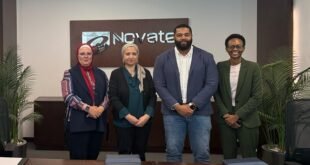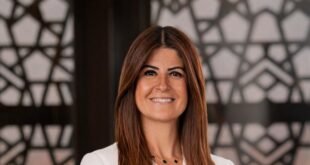INAUGURAL EARTHNA SUMMIT TO FOCUS ON SUSTAINABILITY PATHWAYS FOR HOT AND DRY DESERT ENVIRONMENTS
QF center aims to spark discussions with global experts on challenges and solutions for impacted countries
Sustainability issues faced by countries with hot and arid climactic characteristics will be the focus of the first Earthna Summit at Msheireb Downtown Doha on 8-9 March.
Organized by the Earthna Center for a Sustainable Future, a member of Qatar Foundation, in collaboration with the Ministry of Environment and Climate Change, the carbon-neutral event will bring together local, regional and international policymakers, thought leaders, academics, and businesses to discuss topics around how to create new sustainability frameworks; food security, adaptation and resilience; climate and energy; and biodiversity, ecosystems and indigenous knowledge.
Titled, ‘Building New Sustainability Pathways for Hot and Arid Environments’, the event will convene over 500 participants for plenary speeches, panel discussions, roundtables, and workshops. The interactive sessions will help identify sustainability solutions centered around the unique needs of these countries, merging technology but also drawing on traditional practices and cultural values, smart cities, and food security.
Speakers include His Excellency, Fahad Mohammed Al-Attiyah, Ambassador of the State of Qatar to the United Kingdom; Dr. Jane Goodall, DBE, founder of the Jane Goodall Institute and UN Messenger of Peace; Ian Vasquez, Vice President of the Cato Institute, a public policy research organization; Abdel-Wahed Al-Wakil, renowned architect; and Vaclav Smil, Distinguished Professor Emeritus, University of Manitoba.
His Excellency Sheikh Dr Faleh bin Nasser bin Ahmed bin Ali Al Thani, the Minister of Environment and Climate Change, noted the significance of holding the Earthna Summit in Qatar, saying: “The Summit is an opportunity for Qatar to demonstrate its commitment to sustainability by supporting the continuation of local, regional, and international collaboration on important environmental issues. Over a third of the world’s population live in countries with hot and arid environments. Through multilateral discussion on environmental and social research and practices, the Summit will not only support Qatar’s goals, but also those of many other nations which share similar climates.”
His Excellency also emphasized that the Summit aligns with Qatar’s efforts to achieve sustainable development by building on relevant national strategies, and supports the pillars of the Qatar National Vision 2030 which include reducing carbon emissions and minimizing carbon footprint. Additionally, His Excellency stressed the importance of collaboration amongst national stakeholders to accelerate progress towards sustainable economic growth, which protects the environment and meets the needs of current and future generations.
Commenting on the necessity of the event, Dr. Gonzalo Castro de la Mata, Executive Director of Earthna, said: “In recent years, sustainability discussions have largely centered around the issues faced by tropical and temperate countries. Nations with hot and arid environments— including many from across the Middle East, Africa, Asia, the Mediterranean, and Central and South America—have often been perceived as less relevant to global sustainability. However, the environmental challenges these countries face are significant and growing, and the positive actions they are taking to meet these challenges should be recognized.
“Achieving sustainability requires dialogue, policy foresight, integrated planning, and the unification of a diverse range of partners and actors around a common goal. The Earthna Summit will help to build global understanding of the challenges hot and arid environments face, and will provide a platform to assess, define, and outline solutions, enabling us to shape new pathways that will support countries’ sustainability efforts in the long-term.”
The Earthna Summit is collaborating with a number of local and regional organizations, including Qatar’s Ministry of Environment and Climate Change, the Qatar Environment and Energy Research Institute, and the Middle East Council on Global Affairs. International collaborators include the Commonwealth Secretariat, Global Counsel, and the Stimson Center.
 التكنولوجيا وأخبارها بوابة مصر لأخبار تكنولوجيا المعلومات والإتصالات وفي أفريقيا كما تعتبر مصدر رئيسي للمعلومات حول تكنولوجيا المعلومات والاتصالات والفرص الاستثمارية المرتبطة بالاقتصاد الرقمي في المنطقة بالكامل
التكنولوجيا وأخبارها بوابة مصر لأخبار تكنولوجيا المعلومات والإتصالات وفي أفريقيا كما تعتبر مصدر رئيسي للمعلومات حول تكنولوجيا المعلومات والاتصالات والفرص الاستثمارية المرتبطة بالاقتصاد الرقمي في المنطقة بالكامل







